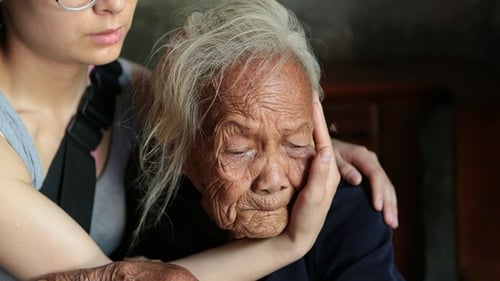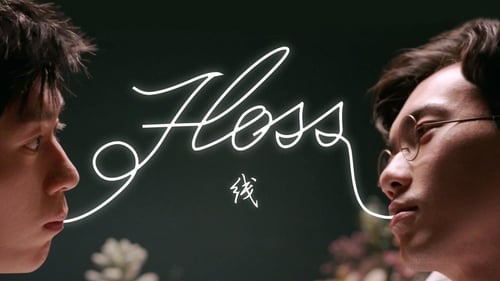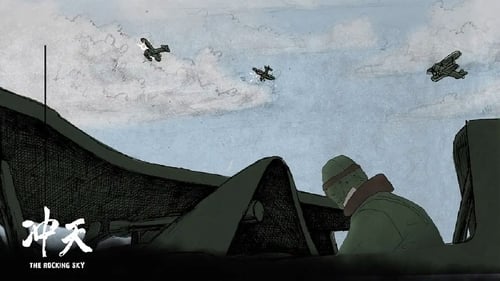
중국 지역 일본군 ‘위안부’ 피해자 20만 명 2014년 촬영 당시 생존자 단 22명 그 22명의 할머니들이 들려주는 마지막 이야기 그리고… 2018년 8월 현재 중국에 남아 있는 ‘위안부’ 피해자는 단 6명 할머니들 대부분은 90세를 넘겨 삶의 끝자락에 서 있다.

The father tells his daughter Nunu a lie that there is a cow in her milk cup. She believes it and drinks up milk, but there isn't any cow. Her father tells her a variety of lies, which Nunu finds increasingly difficult to believe.

A soon-to-be first-time voter, the filmmaker’s thought-provoking journey into the Rust Belt and South captures four Asian American voters’ ardent first time grassroots political participation ignited by the 2016 rise of “Chinese Americans for Trump.” FIRST VOTE is a character driven cinema verité style film chronicling the democratic participation of four Asian American voters from 2016 through the 2018 midterm elections.

마이키앙은 등대에서 일하는 30세 전후의 노총각이다. 외롭고 단조로운 생활속에 그는 꿈속에서 종종 첸킹이라는 여자를 만난다. 호텔에서 일하는 첸은 서른도 못되어 남편을 잃고 자신의 아들 과 함께 불운한 삶을 사는 여자다. 어느날 두사람은 만나게 되고 마이는 첸에게 자신과 관계를 맺을 것을 강요한다. 첸이 울자 마이는 심한 자책감을 느낀다. 호텔 지배인 모아저씨는 첸이 강간 당했다고 믿고 마이를 고소한다. 마이는 감옥에 갇히는데 나중에 첸이 강간이 아니라고 증언을 하여 마이는 석방된다. 첸은 세간의 입놀림의 표적이 되고, 그 사실을 알게된 마이는 첸을 찾아간다.

A Yangtze Landscape utilizes a non-narrative style, setting off from the Yangtze's marine port Shanghai, filming all the way to the Yangtze River's source, Qinghai/Tibet - filming a total distance of thousands of kilometers. Experimental music and noise recorded live on scene are used in post-production, painstakingly paired with relatively independent visuals, creating a magically realistic atmosphere contrasted with people seeming to be 'decorative figures' right out of traditional Chinese landscape scrolls.

Different veterans, different memories of the Anti-Japanese War, and different lives. The oral narratives of 7 veterans show you the pictures of the Anti-Japanese War in that year, and take you to understand the current situation of the veterans of the Anti-Japanese War in Guangdong.

Zhang Xin was sent to Guizhou, his hometown, to write an article. Strange things start to happen around him...

New Castle is a remote rural village where houses and mountains have been distorted due to excessive mining. Under the "New Village" campaign, all the villagers will be moved into the nearly completed Luxury Buildings. The documentary depicts the life of two groups of people, miners and villagers. The miners who are from all over the country, lost their jobs because of the Olympic Games in Beijing - the mine was shut down to make the air less polluted. The villagers had no better luck. Granny Fan lost two sons and two grandsons in a mining accident. Old Han and Old Wang are still farming. Some youngsters are gambling in the house of Han Bin, who was crippled in another mining accident. In the film, you can also see the village election, the service of local Christians, and people worshipping for a better year to come.

황샤오유의 가족은 오랜기간동안 위기를 겪고 있다. 동성애자로 밝혀진 아버지와 신경질적인 어머니가 아슬아슬한 결혼생활을 유지하고 있기 때문이다. 그러나 프랑스인과 결혼 후 임신 6개월차에 접어든 황샤오유가 친정으로 돌아오며 가족의 위기가 더욱 심해지기 시작한다.

철도 위에서 3년 이상 촬영하면서 빛과 어둠, 언어와 제스처가 교차하며 변화하는 중국의 내면을 담았다. 추상회화를 연상케 하는 프레임을 통해 인간과 기계의 만남을 묘사한다. 기차의 일상과 인간을 추상적 이미지로 조형한 에세이 필름. (2015년 제16회 전주국제영화제) 리뷰 3년의 시간 동안 중국의 원근각지를 이동하는 철도의 이모저모를 편집하여 만든 에세이 다큐멘터리이다. 철로, 곤히 잠자는 사람들, 콩나물시루 같은 기차의 낭하, 좁은 통로에서 담배를 피우는 사람들은 중국 사회의 빛과 그림자를 무연히 은유한다. J. P 스니아데키 감독은 추상회화를 연상케 하는 회화적인 프레임 구성을 즐겨 사용한다. 순간순간 카메라의 존재를 드러나거나 카메라 뒤에 있는 자신을 드러내기도 한다. 육중한 철의 질감, 비곗덩어리, 핏물이 흐르는 내장 등의 오브제들을 활용하면서 그는 빈 라덴이나 카다피와 모택동을 비교하는 중국 사람들의 이야기를 슬쩍 끼워 넣음으로써 사회학과 문화인류학을 오간다. 슬금슬금 옆걸음질 치며 잠행하는 카메라는 영화의 말미에 쾌적한 상 등급 고속열차로 점핑한다. 철도, 기차의 일상, 인간을 추상적인 이미지로 조형해낸 이 에세이 필름은 사물을 응시하는 밝은 눈을 지닌 예술가의 노력에 의해 탄생했다. 2014년 「필름코멘트」가 선정한 10대 영화에 이름을 올렸다. (2015년 제16회 전주국제영화제/장병원)

It has been a month Chang's wife Ling Yue has been missing. With no reasons one fine day she went to work as usual and then never returns. No one knows where she went or what had happened to her. Chang could not figure out why she disappears out of the sudden. She left no message of whatever kind or clues. One day a man named Tong shows up and claims to be Ling Yues lover. Apparently Tong is looking for Ling Yue too. In a turn of event both men formed an uneasy alliance in order to find Ling Yue

In 1946, Heidi is entrusted to a Swiss family by her father. He will never come back for her. Today, François Yang questions his mother about her past. What follows is a journey to China, a quest to reconstruct memory. Through contact with her brothers and sister, Heidi measures the extent of the drama experienced by her family that remained in China, persecuted by the Communist Party.

Poet Wolf (Lang) chose to starve himself to death, in a beautiful flower blossoming Spring. This is a poetic, aesthetic and brutal film that adapted from the true stoy of Poet Wo Fu's suicide.

The relationship between two young men in Beijing becomes strained after one of them develops an unusual fetish.

In rural China, the job of enforcing the Communist Party's one-child policy falls on government bureaucrats tasked with imposing fines, birth control, and forced sterilizations. Xu Huijing documents this process in his native village of Ma, following the tenacious efforts of the local birth control chief during an increased sterilization quota period, revealing the absurd and tragic local consequences of high-level government policy. (Chicago International Film Festival)

As a person who has taken art exams, Guo Jiang chose to enter the industry of "art exam training" after graduating from university. His role is that of both an educator and a businessman, although most of the time he prefers to appear as "Mr. Guo". The stage on which Mr. Guo's skills are put to use is a small county in central Henan, which is also his hometown. This documentary is about Guo Jiang's career and life.In short, hovering between the desire and the so-called ideal, adhere to or let go, he needs to make a choice.

On that afternoon, an old man quarrels with the driver on a bus that runs between the old town and the new.

One long tracking shot through a park in Chengdu.

Set in a quasi-ghost town that once thrived with oil in China's arid northwest, Yumen is a haunting, fragmented tale of hungry souls, restless youth, a wandering artist and a lonely woman, all searching for human connection among the town's crumbling landscape. One part "ruin porn", one part "ghost story”, and entirely shot on 16mm, the film brings together performance art, narrative gesture, and social realism not only to play with convention and defy genre, but also to pay homage to a disappearing life-world and a fading medium.

To commemorate the 70th anniversary of the victory of WWII, this documentary film describes the eight years of dauntless air-force fighting of the republic of China during the Anti-Japanese War, with only 300 combat-capable aircraft from China while Japan had over 2000.

















